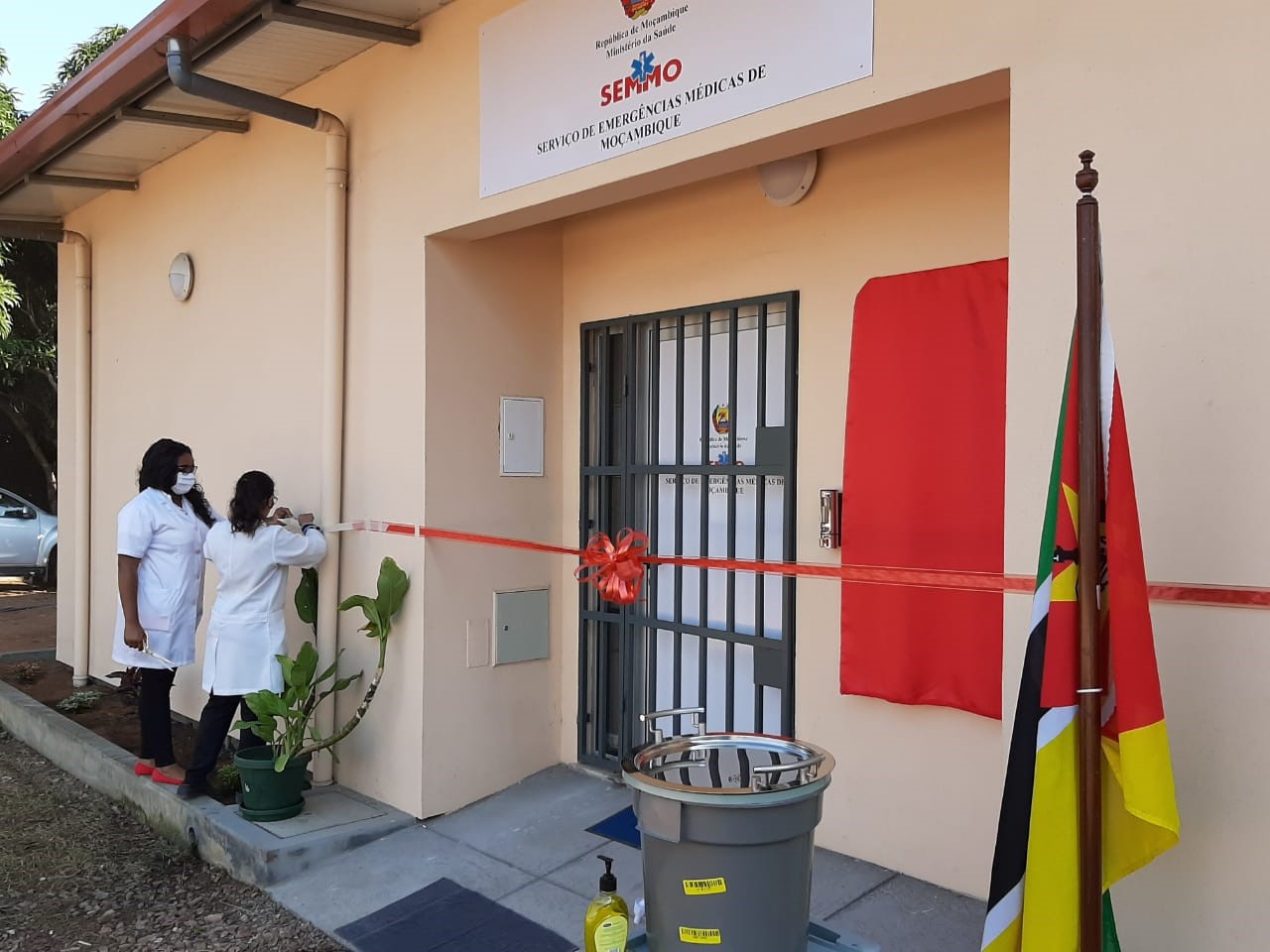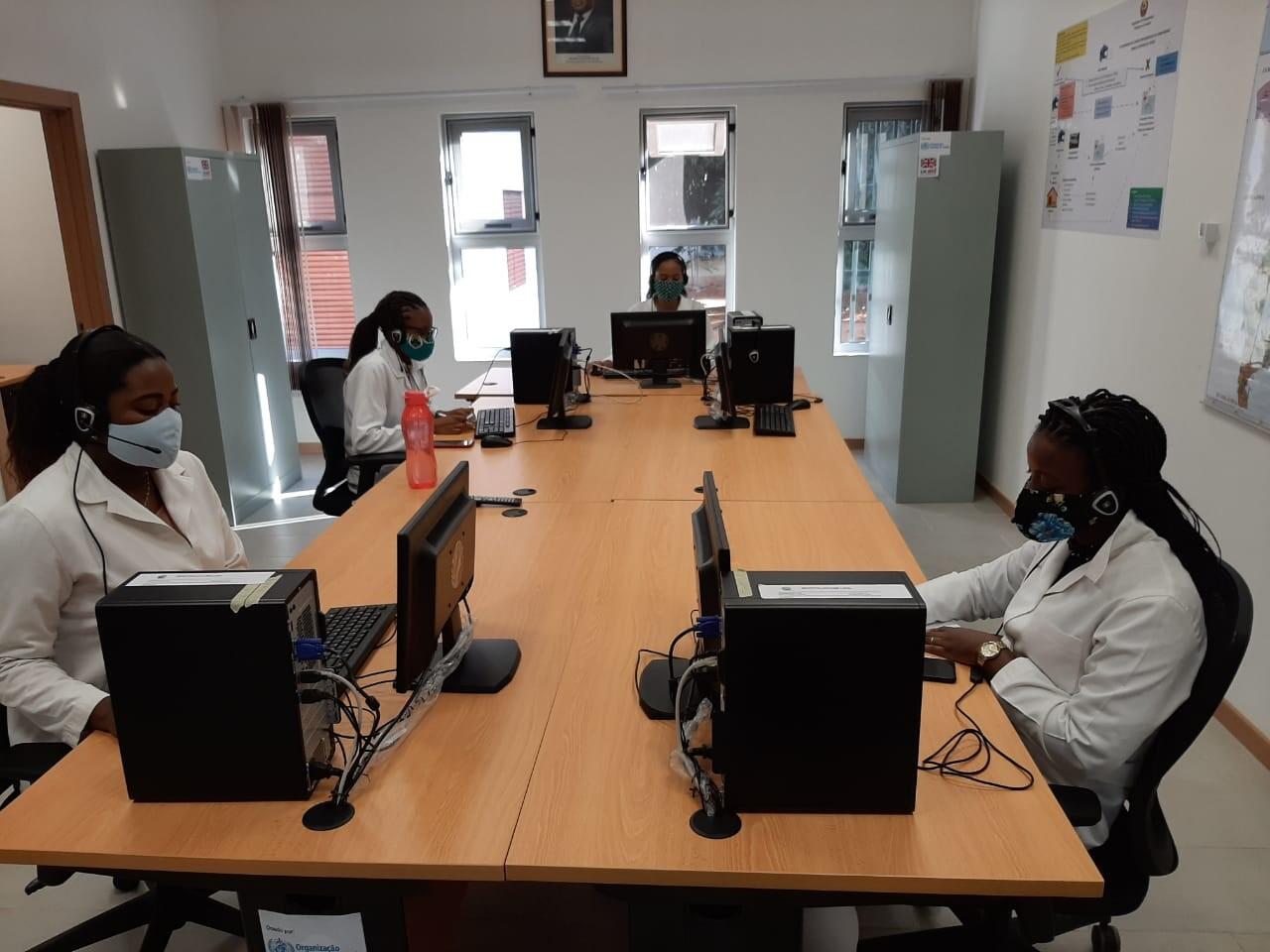Since early May, thousands of citizens in Mozambique have received medical support, advice and referrals in real-time from medical clinicians through the establishment of the COVID-19 call center, launched by the Government of Mozambique.
“It is gratifying to know that in some way we are contributing to locating suspected cases of the virus and also providing psychological support to the population in this difficult time...The call center is a chain of the health system that came to support the country, so that even at a distance, patients continue to receive care and guidance. I feel honored to be part of this movement,” says Nilam Arvinkumar, a female Call Center Operator.
The call center, inaugurated by the Vice Minister of Health at the end of May, with remarks made at the event by UNFPA Mozambique’s Resident Representative on behalf of partners, allows citizens to obtain high-quality, accurate advice and information on COVID-19 from medical clinicians, based on the callers’ symptoms and needs.
“Through this call center, we are educating, diagnosing and empowering a population on how to protect themselves and manage the pandemic within the constraints of the environment they live in,” shared Andrea M. Wojnar, Resident Representative of UNFPA Mozambique.
With nearly 2,000 calls made on a daily basis, 41 clinicians operating the call center refer callers to medical services and neighbouring health facilities, based on an individual’s symptoms. The clinicians are also able to track quarantine violations and respond to non-compliance with the Government’s State of Emergency restrictions. Since its official launch in early May, the Call Center has received more than 50,000 calls.
“The Call Center facilitates communication between the population and reliable sources, who can share updated information about COVID-19. We, the operators of the Center, can also forward complaints about non-compliance with quarantine, mandatory isolation and social distancing to the authorities, while simultaneously ensuring COVID-19 screening and offering necessary recommendations according to the clinical condition of the caller,” shared Nilam.

In addition to information dissemination, the Call Center tracks and monitors potential and positive cases of COVID-19, including how many people registered with symptoms, how many were referred for testing and how many were tested in the end. To date, 168 persons with suspected cases of COVID-19 have been identified and tracked.
Preliminary data from the call center shows that that men are three times more likely than women to phone the call-center. Further efforts are underway to encourage and ensure more women and girls, including the most vulnerable, are able to call, access the hotline, and receive the information that is most crucial to them. Specifically, to ensure tailored advice is made available to pregnant women and female survivors of violence, the clinicians will soon receive training on adolescent sexual and reproductive health and gender-based violence.
“We know worldwide that the pandemic impacts women and girls disproportionately, making it crucial to ensure services such as the Call Center are available for those who may be homebound or lack resources to travel for a medical consultation. Not only is the call center easily accessible, it’s free and an equalizer. It’s demonstrating the power of technology to extend and ensure access to information in ways never thought possible before the pandemic struck,” says Wojnar.
“Misinformation spreads online, in messaging apps and person to person. Its creators use savvy production and distribution methods. To counter it, scientists and institutions like the United Nations need to reach people with accurate information they can trust,” said António Guterres, Secretary-General of the UN, in an article announcing the new ‘Verified’ campaign.
In the spirit of ‘good communication saves lives,’ the COVID-19 call center in Mozambique is an example of a sound initiative that reinforces and supports the importance of sharing trusted, accurate health-related information to the general public. By mitigating rumors and providing counselling and advice in real-time, the Call Center is helping citizens make calculated, well-informed decisions about their health and well-being.
Due to its early success, the call-center will expand to Beira and Nampula provinces, helping to build capacity of additional clinicians and allow for closer monitoring and follow-up of patients. Demonstrating the power of public-private partnerships, mobile phone operators in Mozambique have provided toll-free access to the call-center (by dialing #100) and have contributed with internet and technical expertise to set-up the operation. Now by scaling-up to three call-centers across the country, clinicians will be equipped to speak to nearly 100 callers at any given time.
*The COVID-19 Call Center in Mozambique has received support from UN agencies, including UNFPA and the World Health Organization (WHO); bi-lateral governments such as the United States through the Centers for Disease Control and Prevention (CDC); NGOs including Jhpiego and Fundação para o Desenvolvimento da Comunidade (FDC); and the private sector, including mobile phone operators.


